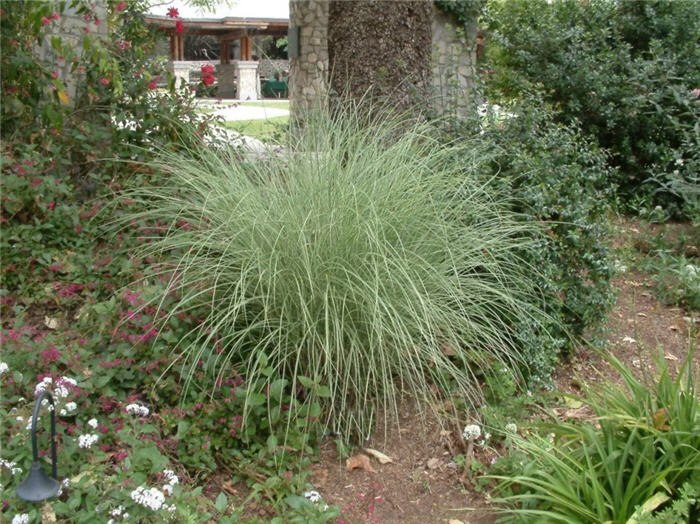| Botanical Name: Miscanthus sinensis 'Morning Light' | |
| Common Name: Morning Light Maiden Grass |

-
Anatomy
-
Culture
-
Design
Plant Type
Perennial, Grass
Height Range
3-6'
Flower Color
Red
Flower Season
Summer, Fall
Leaf Color
Green, Silver, White, Variegated
Bark Color
n/a
Fruit Color
n/a
Fruit Season
n/a
Sun
Full, Half
Water
Medium
Growth Rate
Moderate
Soil Type
Sandy, Clay, Loam, Rocky, Unparticular
Soil Condition
Average, Rich, Well-drained, Moist
Soil pH
Neutral
Adverse Factors
n/a
Design Styles
English Cottage, Formal, Japanese, Mediterranean, Ranch, Water Garden, Native Garden, Woodland
Accenting Features
Unusual Foliage
Seasonal Interest
Winter, Summer, Fall
Location Uses
Background, Entry, Perennial Border, Shrub Border, Foundation, Patio, Park
Special Uses
Cut Flowers, Hedge, Screen, Mass Planting, Naturalizing
Attracts Wildlife
Birds
Information by: Stephanie Duer
Photographer: Linda Engstrom
Photographer: Linda Engstrom
-
Description
-
Notes
Morning Light maiden grass is a graceful clumping grass with an upright, arching habit. Its narrow green leaves are banded at the margins in white, giving it a silvery appearance. The clump grows 4 to 5 feet, and the flowers, usually appearing in the fall, stand at 5 to 6 feet. Flowers emerge reddish-bronze and fade to buff. Due to its white margins, Morning Light does better in part sun conditions, with some mid to late day shade. Lovely as an accent or massed with other grasses and shrubs.
Miscanthus grow in full sun to bright shade, though white variegated forms appreciate a little mid-day shade. Provide well drained soils; sandy-loam to clay-loam will do just fine. All Miscanthus should be cut back in late winter to early spring, about the time that spring bulbs are emerging. Cut back to within inches of the ground. Like other ornamental grasses, Miscanthus pairs well with spring flowering bulbs. See Guides for details.